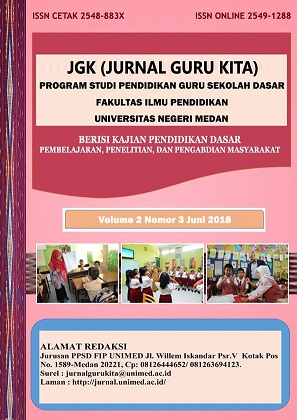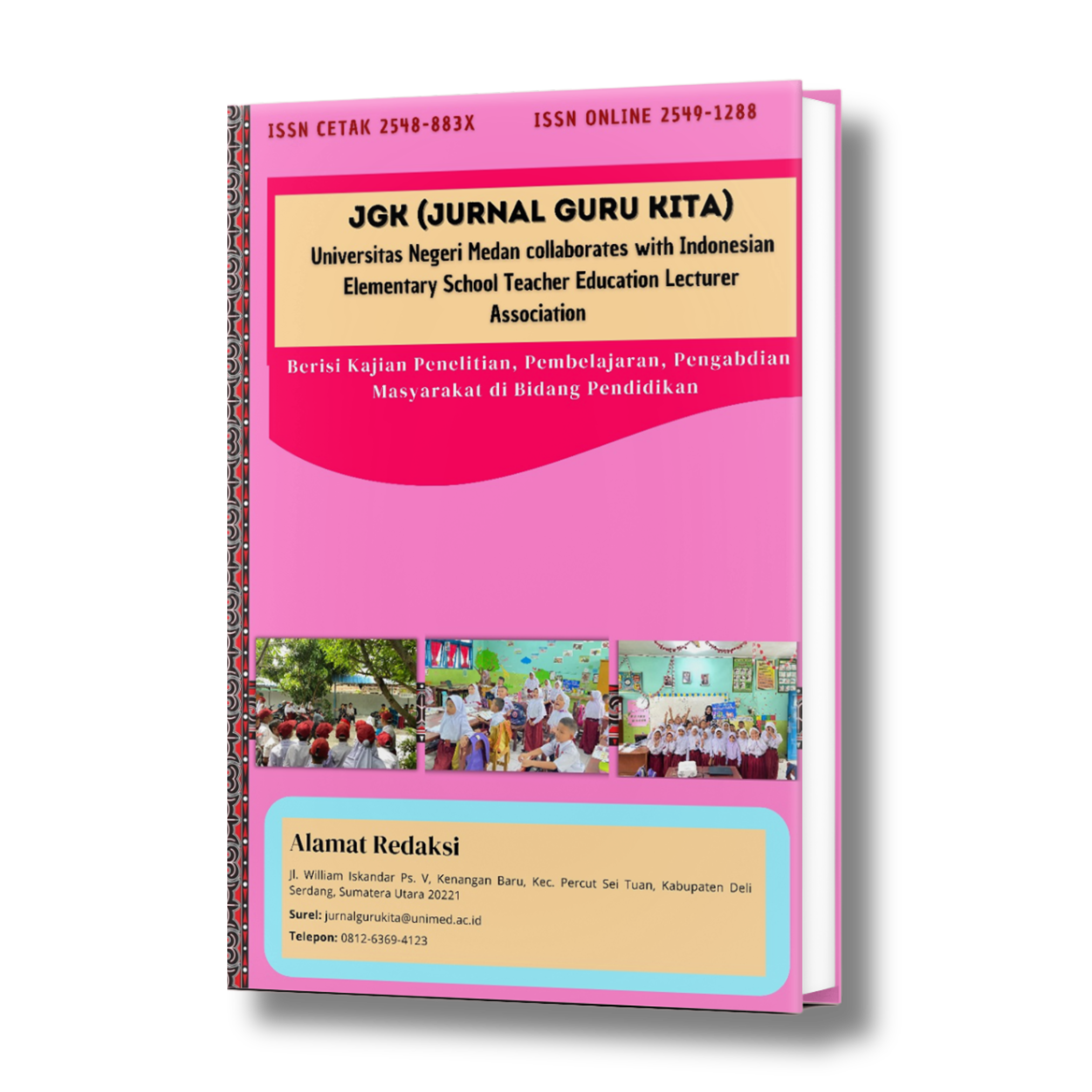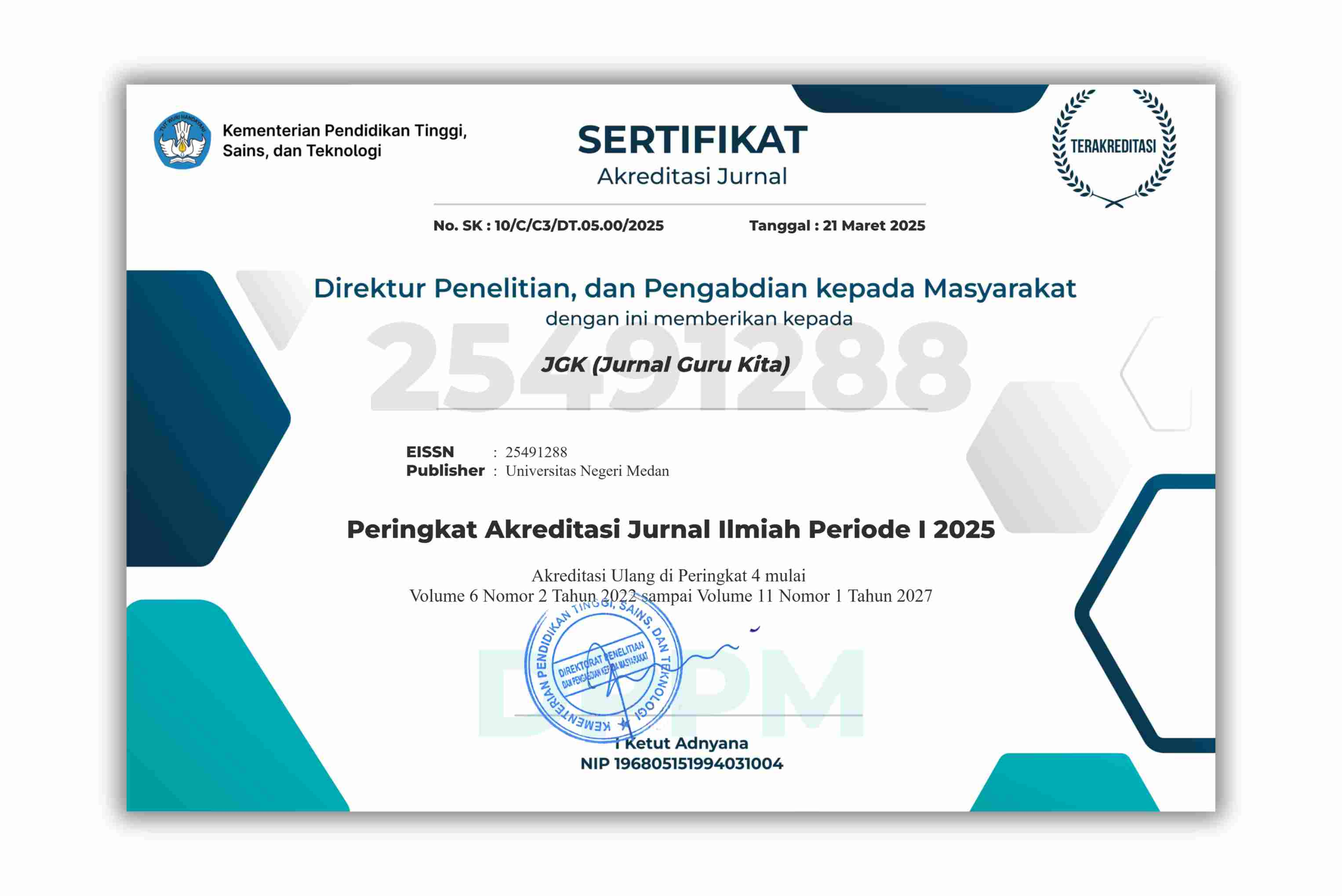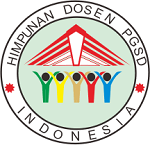EFEKTIVITAS MODEL PEMBELAJARAN PROBLEM BASED LEARNING TERHADAP KEMAMPUAN PEMECAHAN MASALAH SISWA PADA MATA PELAJARAN IPA DI SD NEGERI 101800 DELI TUA T.A 2017/2018
DOI:
https://doi.org/10.24114/jgk.v2i3.10340Abstract
Abstrak: Efektivitas Model Pembelajaran Problem Based Learning terhadap Kemampuan Pemecahan Masalah Siswa pada Mata Pelajaran IPA di SD Negeri 101800 Deli Tua T.A 2017/2018. Tujuan penelitian ini adalah untuk mengetahui efektivitas model pembelajaran Problem Based Learning terhadap kemampuan pemecahan masalah siswa pada mata pelajaran IPA di SD Negeri 101800 Deli Tua. Jenis penelitian ini adalah penelitian pra eksperimen dengan desain one group pre-test post-test design. Dari analisis data model pembelajaran Problem Based Learning dapat dinyatakan efektif secara signifikan dengan thitung > ttabel. Berdasarkan hasil analisis data statistik dapat disimpulkan bahwa model pembelajaran Problem Based Learning efektif terhadap kemampuan pemecahan masalah siswa pada mata pelajaran IPA di SD Negeri 101800 Deli Tua.Downloads
Published
2018-08-07
How to Cite
Nurhairani, N., & Anggraini, D. G. (2018). EFEKTIVITAS MODEL PEMBELAJARAN PROBLEM BASED LEARNING TERHADAP KEMAMPUAN PEMECAHAN MASALAH SISWA PADA MATA PELAJARAN IPA DI SD NEGERI 101800 DELI TUA T.A 2017/2018. JGK (Jurnal Guru Kita), 2(3), 1–7. https://doi.org/10.24114/jgk.v2i3.10340
Issue
Section
Articles
License
Authors published with the JGK (Jurnal Guru Kita) agree to the following terms:
- Authors retain copyright and grant the journal the right of first publication with the work simultaneously licensed under a Creative Commons Attribution License (CC BY-SA 4.0) that allows others to share the work with an acknowledgment of the work's authorship and initial publication in this journal.
- Authors are able to enter into separate, additional contractual arrangements for the non-exclusive distribution of the journal's published version of the work (e.g., post it to an institutional repository or publish it in a book), with an acknowledgment of its initial publication in this journal.
- Authors are permitted and encouraged to post their work online (e.g., in institutional repositories or on their website) prior to and during the submission process, as it can lead to productive exchanges, as well as earlier and greater citation of published work. (See The Effect of Open Access)

























